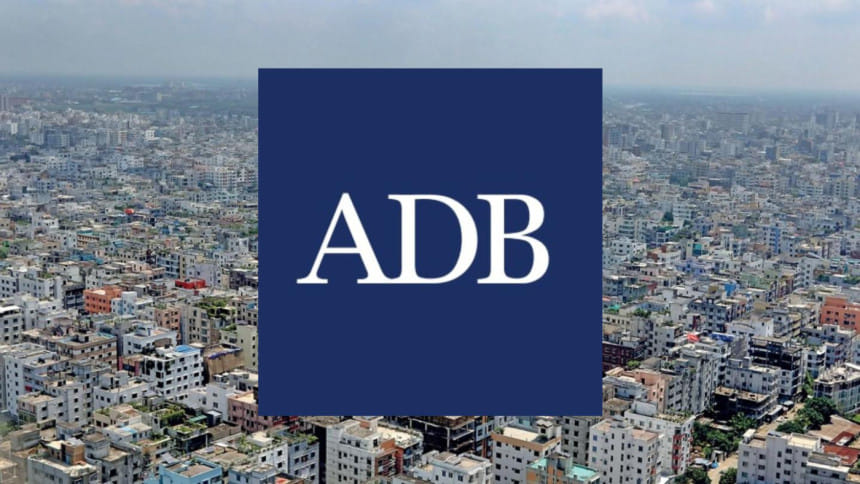ADB cuts Bangladesh’s growth forecast due to political unrest

Asian Development Bank (ADB) has lowered its forecast for Bangladesh's economic growth to 5.1 percent for the current fiscal year, primarily due to supply disruptions caused by political unrest in July and August 2024.
The Manila-based multilateral lender had earlier projected that the overall production of goods and services in Bangladesh would grow by 6.6 percent for the fiscal year (FY) 2024-25.
The ADB said it lowered Bangladesh's GDP growth projection for the current fiscal, also taking into account the recent floods.
"Additionally, fiscal and monetary policies are expected to remain tight, further dampening consumption and investment demand. The forecast is highly uncertain as significant downside risks cloud the macroeconomic outlook," the ADB said.
"These risks primarily stem from ongoing political instability, a fragile law-and-order situation, and vulnerabilities within the financial sector."
The ADB's latest forecast is below the World Bank's June projection, which estimated Bangladesh's economic growth at 5.7 percent for FY2025, driven by increased private consumption as inflation eased and a rise in investment due to large infrastructure projects.
The ADB observed that demand remained suppressed by elevated inflation, tight global monetary conditions, and other macroeconomic challenges.
"Inflation has remained high due to elevated commodity and energy prices and currency depreciation. The current account deficit narrowed as both exports and imports declined," the ADB said.
The organisation further predicted that inflation could rise to double digits.
"Restoring and maintaining macroeconomic stability will depend on accelerated reforms to increase revenue for a better fiscal balance, stabilise the financial sector through improved interest and exchange rate policies, and diversify the economy," the ADB added.
Amid persistent inflation, continued pressure on external accounts, import contraction, and sluggish private investment, Bangladesh recorded below 6 percent growth in the past two fiscal years: 5.78 percent in FY2023 and 5.82 percent in FY2024.
The government had earlier targeted a GDP growth rate of 6.75 percent for FY2025, a figure economists have described as 'ambitious' given the ongoing economic challenges.

 For all latest news, follow The Daily Star's Google News channel.
For all latest news, follow The Daily Star's Google News channel. 






Comments